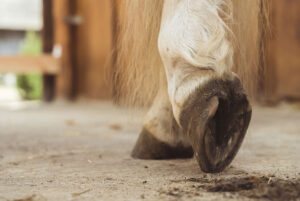From Efficacy to Reactions: What to Expect From Vaccines
- Topics: Article, Vaccinations
Each spring, owners are encouraged to schedule an equine wellness exam with their veterinarians that often includes annual vaccinations. Vaccinations can be put into two categories: core vaccines, used to protect horses against diseases that every horse is at risk of contracting (such as West Nile virus, Eastern and Western encephalitis, tetanus, and rabies), and risk-based vaccines. The latter are often recommended based on a horse’s geographic location, occupation and traveling status.
One of the most critical health decisions a veterinarian and horse owner can make is choosing the right vaccines. Bob Stenbom, DVM, senior equine professional services veterinarian with Boehringer Ingelheim, explains what should be considered when choosing a vaccine.
“Efficacy is a vaccine’s ability to protect against a certain disease challenge,” says Stenbom. “It can vary, and can be based on the time elapsed since the previous exposure to that vaccine, and how well the initial series of vaccines were given to the horse. It also depends on how intense or prevalent the disease is in the horse’s geographic area, among other things.”
Some horses that compete or perform are required to be vaccinated regularly to minimize outbreaks. Find the U.S. Equestrian vaccine rule online
Create a free account with TheHorse.com to view this content.
TheHorse.com is home to thousands of free articles about horse health care. In order to access some of our exclusive free content, you must be signed into TheHorse.com.
Start your free account today!
Already have an account?
and continue reading.
Related Articles
Stay on top of the most recent Horse Health news with


















